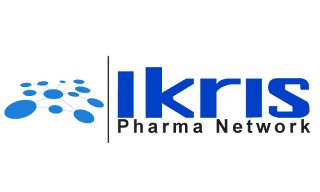Atriance contains the active ingredient nelarabine, which is a medicine primarily used for the treatment of T-cell lymphoblastic lymphoma (T-LBL), a rare and aggressive type of non-Hodgkin lymphoma (nHL). Here's an overview of T-cell lymphoblastic lymphoma (T-LBL) and how the medicine Atriance injection is used in its treatment:
Overview of T-cell Lymphoblastic Lymphoma (T-LBL):
T-cell lymphoblastic lymphoma (T-LBL) is a subtype of non-Hodgkin lymphoma (nHL) that mainly affects immature T-cells in the lymphatic system. It typically exists as a solid mass or tumor in the lymph nodes, thymus, or certain other lymphatic tissues. T-cell lymphoblastic lymphoma (T-LBL) shares characteristics with acute lymphoblastic leukemia (ALL) because both occur from immature lymphocytes. T-LBL is more common in children and adolescents but can develop in adults as well.
Overview of Atriance (Nelarabine):
Atriance (nelarabine) is a 250 mg/ 50 mL intravenous chemotherapy therapeutic medication authorized for the treatment of patients with T-cell acute lymphoblastic leukemia (T-ALL) and T-cell lymphoblastic lymphoma (T-LBL). This medicine acts by interfering with the progression and division of unhealthy cells, specifically T-cells.
Treatment with Atriance:
Atriance 250 mg/ 50 mL is generally used as part of combination chemotherapy regimens for patients with T-LBL. It is administered intravenously (IV). The specific treatment strategy may vary on behalf of the patient's age, overall health, and the current stage of the condition.
Treatment may be given in cycles, with rest periods to help enable the body to recover from the effects of chemo. It's necessary for patients to be precisely monitored by doctors during treatment for potential adverse reactions and complications.
Side Effects:
Treatment with Atriance injection can have different side effects, including bone marrow suppression, which can cause reduced blood cell counts. Other common side effects may include vomiting, fatigue, nausea, and nerve-related issues.
Patients taking this therapy should be closely assessed for probable complications, including infections and decreased blood cell levels.
Prognosis for T-Cell Lymphoblastic Lymphoma (T-LBL):
The prognosis for T-LBL varies on behalf of factors such as the disease stage at diagnosis, the response to therapy, and the overall health of the individual patient. Advances in chemotherapy as well as stem cell transplantation have enhanced outcomes for some patients with T-cell lymphoblastic lymphoma (T-LBL), but it remains a challenging disease to treat.
It's crucial for patients with T-LBL to work precisely with their doctor to prepare a personalized treatment strategy that takes into account their particular scenarios and medical history. Atriance 250 mg is one of the tools approved in the treatment arsenal for this rare, aggressive, and serious lymphoma.
Reference:
https://www.ema.europa.eu/en/medicines/human/EPAR/atriance#:~:text=the%20European%20Union.-,Overview,blood%20cell)%20multiply%20too%20quickly.

.jpg)




